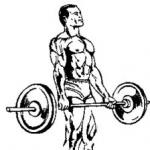Pharmacy chain 36.6 presents an extensive range of drugs at affordable prices that help get rid of varicose veins. Our catalog includes medicines from manufacturers from many countries. You choose the drug you need at a nice price. You can use the filter by country and drug form.
Venotonics are drugs that are necessary for older people. With the help of them, you can prevent the occurrence of problems with the veins.
What you need to know when using our site:
- resource users order the delivery of medicines to any Moscow (or St. Petersburg) pharmacy. You need to pick up the medicine from the pharmacy and pay for it there yourself;
- each drug must undergo a certification procedure that confirms the high quality of the product;
- the site offers a filter that reduces the search time for manufacturers and active products.
Indications for use
On the site you can find a list of venotonic drugs and instructions for use, however, only a doctor can prescribe treatment.
The most common symptoms of varicose veins are:
- swelling of the ankles, feet and lower legs. Along with this, there is a feeling of heaviness in the legs;
- vascular "mesh" and "asterisks";
- paresthesia - there is a burning sensation or tingling in the legs;
- night cramps.
The treatment of the disease must be started at the initial stage, otherwise it will be much more difficult to defeat it in the future.
Contraindications
Depending on the prescribed form of the drug, there may be various contraindications associated with the use. The most popular drug release formats are ointments and gels.
Ointment venotonic has contraindications:
- the drug should not be used for infected wounds or wounds with abundant exudation;
- the medicine is forbidden to use with hypersensitivity to the components.
Release forms
There are many forms of drugs. They differ in dosage and active ingredients, but they all perform the same task. Your doctor can help you choose the right type of medication for you.
Our resource presents a lot of venotonics with prices and detailed instructions for use.
- tablets;
- ointments;
- gels;
- creams.
Manufacturing countries
Many of the drugs are relatively similar, but only a specialist can issue an exact prescription. Some manufacturers produce only venotonics gels, others only tablets.
On our website you can find medicines of any manufacturers:
- French;
- Indian;
- Russian;
- Serbian and others.
BEFORE USING THE DRUGS, READ THE INSTRUCTIONS FOR USE OR CONSULT WITH A SPECIALIST.
Bibliography:
- [i] ICD 10, Background retinopathy and retinal vascular changes [Electronic resource]. – 2018. - access via the link: http://mkb-10.com/index.php?pid=6189
Content
Varicose veins, pain, heaviness in the legs, hemorrhoids are all signs of venous circulation insufficiency. They occur with constant sedentary or standing work, malnutrition, sometimes caused by a genetic predisposition. To correct venous insufficiency, venotonic drugs are used.
What are venotonic drugs
Venotonics or drugs with venotonic properties are designed to normalize the filling of blood in the veins. These large vessels run from the tissues to the heart. The use of venotonics is indicated for venous insufficiency, characterized by pathological expansion of the lumen of the veins, impaired blood circulation in the affected area. This leads to stagnation of venous blood, sweating of fluid from the lumen into the surrounding tissues.
Lack of treatment leads to a violation of the permeability of the capillary walls, a weakening of the tone of smooth muscle muscles, a slowdown in lymphatic drainage and blood circulation in general. Complications are the formation of blood clots, blockage of arterial trunks with thrombotic masses, malnutrition of tissues, the formation of trophic ulcers, complications of an infectious-inflammatory type, bleeding from thinned vessels.
Severe forms of venous insufficiency are treated surgically. With lungs, phlebotonics, angioprotective agents with analgesic and anti-inflammatory effects can be used. Some doctors prescribe venotonics during pregnancy - these are tablets, suppositories, ointments or gels. Drugs with a venotonic effect are unable to completely cure the disease, but they stop the progress of the pathology, are used to prevent and relieve pain, swelling, and heaviness in the affected areas.
All venotonics work according to two methods. The first is to increase the tension of the walls of the venous vessels due to muscle contraction. The second is to reduce the permeability of capillary walls, prevent blood from penetrating into surrounding tissues, eliminate edema and increase vascular tone. Most of the funds act in a complex way. They are divided into groups:
- Venotropic drugs that increase the contraction of muscle elements. These include the spiny needle.
- Venotropic components that improve blood circulation. Representative - horse chestnut extract.
- Polyvalent venotonics with a lymphotropic effect - affect the muscles and capillary permeability in the same way.
Types of venotonic drugs
In medicine, various venotonic drugs are used for varicose veins (dilation of the veins of the limbs), hemorrhoids. Drugs to improve the venous outflow of the brain are also popular. According to the form of release, preparations with a venotonic effect are divided into local (ointments, balms, gels, creams, liniments) and oral (tablets, capsules, elixirs, suspensions, syrups). All venotonics are divided into groups:
- Synthetic - consist of chemical components (diosmin, hesperidin). Representatives: Detralex, Venarus, Vasoket.
- Combined - contain chemical and natural ingredients. Representatives: Aescusan, Troxevasin-Neo, Doppehertz venotonic.
- Vegetable - consist of plant extracts and vitamins. They are divided into flavonoids (Antistax, Angionorm), rutosides (Troxerutin, Iroxevasin Venoruton), angioprotectors (Venitan).

Venotonics in tablets
Venoprotective drugs in the form of tablets are taken more often in the initial stages of the development of venous insufficiency. They are easy to use, quickly absorbed by the body, practically do not cause side effects. Restrictions on the use of tablets are pregnancy, lactation, childhood and intolerance to the components of the composition.
Detralex
Detralex tablets contain diosmin, hesperidin. They have angioprotective and venotonic effects, reduce vein extensibility, eliminate venous congestion, and stimulate microcirculation. The use of the drug reduces the permeability of capillaries, increases their resistance.
- The remedy is indicated for venous-lymphatic insufficiency, exacerbation of hemorrhoids, leg fatigue, feelings of heaviness, trophic disorders.
- Detralex should not be used in case of hypersensitivity to the components. The drug does not have a teratogenic effect, it is not recommended for lactation.
- Side effects: dizziness, malaise, headache, diarrhea, colitis, dyspepsia, vomiting, nausea, urticaria.
- The dosage is equal to two tablets daily (in the morning and in the evening one at a time). With an exacerbation of hemorrhoids, you need to take 6 pcs. for 4 days, then 4 pcs. within three days.
- The analogues of the remedy are Venarus and Venazol.
- Price for 30 pcs. at a dosage of 500 mg - 750 rubles.
Phlebodia
Phlebodia 600 tablets contain diosmin, which exhibits a phlebotonizing effect, reduces vein extensibility, increases their tone and reduces venous congestion. This leads to an improvement in lymphatic drainage, an increase in the density of capillaries, and the normalization of blood microcirculation.
- The drug has an anti-inflammatory effect, is indicated to eliminate the symptoms of lymphovenous insufficiency of the lower extremities, acute hemorrhoids to strengthen the veins and relieve bleeding.
- The remedy is contraindicated in hypersensitivity, lactation, the first trimester of pregnancy, the age of up to 18 years.
- Side effects: swelling, itching, headache, dyspepsia.
- With varicose veins, a tablet is prescribed daily in the morning on an empty stomach for a course of 2 months. With an exacerbation of hemorrhoids, take 2-3 tablets every day with meals for a weekly course.
- The analogue of the drug is Vasoket.
- 15 tablets will cost 680 rubles.
Aescusan
Aescusan oral drops contain escin, horse chestnut seed extract and thiamine hydrochloride (vitamin B1). They exhibit anti-exudative and venotonic effects, reduce vascular permeability by reducing the level of lysosomal enzymes, reducing the breakdown of mucopolysaccharides in the capillary walls, and preventing the filtration of proteins and electrolytes in the intercellular space.
- The drug is indicated for phlebitis, varicose veins, breastfeeding.
- Drops are contraindicated in case of individual intolerance, liver diseases, under the age of 12 years.
- They are taken before meals, diluted in a small amount of water, 12-15 drops three times a day.
- Possible side effects: allergies, irritation of the mucous membrane of the digestive tract, dizziness, headache.
- The analogue of the remedy is Herbion Aesculus.
- The cost of 20 ml drops will be 200 rubles.
Angionorm
Angionorm tablets contain herbal extracts of hawthorn, licorice, horse chestnut, rose hips. They have the property of preventing aggregation, angioprotective and anti-inflammatory effects, tone up the veins and improve microcirculation. The general strengthening effect of the drug is associated with the activation of the diuretic function of the kidneys, an increase in physical performance.
- The drug is indicated for thrombosis, thromboembolism, varicose veins, thrombophlebitis.
- Contraindications are intolerance to the components, chronic diseases of the kidneys, liver, organs of the gastrointestinal tract, pregnancy, and childhood.
- Tablets are taken in 1 pc. three times a day 40 minutes after meals for up to 3 weeks.
- Side effects: allergies, dyspepsia.
- Analog: Venonorm.
- Price for 100 pcs. 100 mg will be 560 r.
Venoruton
Venoruton capsules contain hydroxyethyl rutoside. Other drug release formats: effervescent tablets and gel. The agent has a venotonic, angioprotective properties, inhibits erythrocyte aggregation, and exhibits an anti-inflammatory effect. With venous insufficiency, Venoruton relieves pain, swelling, convulsions, with hemorrhoids it reduces itching and bleeding, increases capillary resistance and anticonvulsant threshold.
- According to the instructions, the drug is indicated for varicose veins, hemorrhoids, pain after sclerotherapy.
- Its contraindications include hypersensitivity, the first trimester of pregnancy.
- Capsules are taken with meals: for varicose veins, 1 pc. 2-3 times a day for a course of 2-3 months (repeat twice a year), with lymphostasis - 10 capsules daily for a six-month course, with hemorrhoids - 1 pc. 2-3 times a day for a course of 28 days.
- Side effects: diarrhea, nausea, heartburn, skin rash, headache.
- Analogue: Askorutin.
- 50 tablets of 300 mg will cost 930 rubles.

Doppelhertz
Elixir Doppelherz Venotonic contains vitamins B6, B2, PP, grape powder, blueberry and blackcurrant juices, red wine concentrate, butcher's broom, black chokeberry and blueberry extracts. It has a venotonic effect, helps to improve blood circulation in the veins, relieve swelling, fatigue and a feeling of heaviness in the legs, strengthen muscle tone.
- The biologically active additive is indicated as a source of vitamins, nicotinamide, anthocyanins, for varicose veins, swelling of the legs, fatigue, trophic ulcers, metabolic disorders.
- Contraindications: pregnancy, lactation, intolerance to components.
- Adults take a tablespoon of the drug 2-3 times daily for 2 months, a repeat is possible in a month.
- Side effects: allergies, skin rash, dyspepsia.
- Analogue: liquid horse chestnut extract.
- 250 ml of elixir can be bought for 370 rubles.
Glivenol
Phlebodynamic and analgesic capsules Glivenol contain tribenoside, which reduces capillary permeability and has an anti-inflammatory effect. A venotonic medication improves blood microcirculation, increases vascular tone, and reduces the manifestations of venous congestion.
- It is indicated for varicose veins, venous circulation disorders, hemorrhoids, phlebitis, periphlebitis.
- The remedy is contraindicated in case of individual intolerance to the components, lactation, it is used with caution in the first trimester of pregnancy.
- Capsules are taken during meals or immediately after it, 1 pc. 2-3 times daily.
- Side effects of the drug: allergic reactions, angioedema, rash, urticaria, anaphylaxis, respiratory disorders.
- Additionally, Glivenol is available in the form of a cream and suppositories against hemorrhoids. These are its counterparts.
- 20 capsules are sold for 140 rubles.
Ointments
Venotonic foot products for topical use are represented by ointments, gels, balms, creams and liniments. They should be applied in ascending (from heel to thigh) movements, lightly rubbed until completely absorbed. The use of ointments helps relieve fatigue and a feeling of heaviness in the legs, with hemorrhoids - to stop pain and stop bleeding (in this case, they are used to lubricate the skin of the anorectal region).
Troxevasin
Troxevasin gel contains troxerutin. Also, the drug is available in the form of capsules. The active substance - a derivative of rutin - has vitamin activity, exhibits venotonic, hemostatic, anticoagulant and antiexudative effects, reduces capillary permeability and fragility, relieves swelling and inflammation.
- Troxevasin is indicated for varicose veins, thrombophlebitis, venous insufficiency, periphlebitis, pain in trauma.
- The tool is not allowed to be used for open infected wounds or in places with abundant exudation, with hypersensitivity, under the age of 18 years.
- The gel is applied twice a day, gently rubbed, you can cover the affected area with elastic stockings or bandages. It is recommended to combine it with capsules.
- Side effects: allergies, headache, paresthesia.
- Analogue: Troxevasin-Neo.
- 40 g of gel costs 215 rubles.

Heparin ointment
Anticoagulant heparin ointment contains sodium heparin, which activates prothrombin in the blood plasma and accelerates anticoagulant action. The substance disrupts the formation of thrombin, reduces platelet aggregation, has a hypolipidemic effect, accelerates the resorption of hematomas, and reduces tissue swelling.
- The remedy is indicated for thromboembolic complications, vein thrombosis, microcirculation disorders, bleeding nodes of hemorrhoids, when they are affected by microbes.
- Contraindications are bleeding, increased vascular permeability.
- It is applied to the affected areas several times a day, gently rubbed.
- Side effects: lymphangitis, mastitis, trophic ulcers, skin elephantiasis.
- The analogue is the Lyoton tool.
- 25 g of ointment will cost 75 rubles.
Fleming
Fleming's natural bactericidal ointment has a drying effect, promotes tissue regeneration due to the homeopathic composition. It includes extracts of witch hazel, calendula, esculus, menthol, zinc oxide, petroleum jelly.
- The drug is indicated for uncomplicated external hemorrhoids, allergic dermatitis, vasomotor rhinitis.
- Of the contraindications, the funds distinguish hypersensitivity to the components of the composition.
- With hemorrhoids, the ointment is applied to the anus 1-3 times a day with a cotton swab for 5-7 days. In case of allergic dermatitis, it is applied to the skin twice a day for a course of 10-14 days, for rhinitis, the mucous membrane is lubricated or turundas are laid 2-3 times a day for 5-7 minutes in a course of 7-10 days.
- Of the side effects noted allergies.
- The ointment has no analogues.
- For 25 g of ointment, you will have to pay 310 rubles.
Video
Did you find an error in the text?
Select it, press Ctrl + Enter and we'll fix it!
Venotonics (phlebotonics) are drugs with a pronounced angioprotective effect. They improve the condition of the vascular wall and are actively used for prevention and treatment, which is manifested by the expansion of the veins, stagnation of venous blood, the release of fluid from the vessels into the tissues. Such a process is often accompanied by thrombosis, tissue degeneration, bleeding from the affected vessels. In the early stages of the pathology, patients are prescribed venotonics, and in advanced cases, surgical treatment is indicated.
Venotonic drugs compensate for the dysfunction of blood vessels by stimulating contractions of the smooth muscles of the vascular wall and reducing capillary permeability. Venotonics weaken, reduce inflammation and have a positive effect on peripheral circulation. These modern drugs have a complex effect and have a healing effect on all the blood vessels of the body. But they do not cure the disease completely, but only inhibit the pathological process or prevent its occurrence. Venotonics eliminate the symptoms of venous insufficiency and prevent the development of severe complications.
Pharmacological properties of drugs that provide:
- Strengthen and tone the vascular wall, reduce capillary permeability, make vessels more elastic and less brittle,
- Improve microcirculation in the surrounding tissues, prevent the formation of edema and blood clots,
- Have anti-inflammatory and analgesic effect,
- Improve lymph flow
- Restore the work of the heart and blood vessels.
Strengthening and increasing the tone of the veins occurs in two ways: by reducing the smooth muscle fibers located in the vascular wall, as well as by reducing the permeability of capillaries and their blood supply. Most of the venotonic drugs have a polyvalent effect.
Currently, the pharmaceutical industry produces venotonics on a plant, synthetic and combined basis.
Classification

- Venotonics based on flavonoids relieve pain, eliminate swelling and trophic disorders, treat convulsions and prevent the occurrence of acute hemorrhoidal attacks. This group includes tablet forms. Antistax, Diosmin, Venarus, Vasoket, Detralex.
- Angioprotectors based on saponins, which have a pronounced hemolytic activity and are found in licorice, horse chestnut, hazel, grape leaves. Representatives of this group are drops for oral administration. "Aescusan", cream and gel "Venitan".
- Rutosides have P-vitamin activity and stimulate the contraction of smooth muscle fibers of the vascular wall. They are found in buckwheat, tea, walnuts. Rutoside-containing drugs include: "Venoruton", "Troxerutin", "Troxevasin". These drugs are prescribed to patients with varicose veins, dermatitis, hemorrhoids. They have a capillary-protective and venotonic effect.
- Synthetic drugs inhibit inflammatory mediators and suppress pain in venous pathology. These include Glivenol, Tribenozide.
- Combined preparations-venotonics contain vegetable, semi-synthetic and synthetic components. They reduce signs of inflammation: pain, swelling, and also strengthen the walls of blood vessels. This group includes "Angionorm", "Doppelhertz", "Venorm".
The most effective venotonics
Medicines for oral use

The intake of venoprotective drugs should be accompanied by courses of physiotherapeutic procedures aimed at improving the blood supply to various organs and stimulating lymphatic drainage.
Ointments and suppositories
- Ointment "Troxevasin" has a protective effect on blood vessels. It contains the substance troxerutin, which has an antioxidant, firming, tonic, decongestant and anticoagulant effect. The drug is rapidly absorbed into the blood and accumulates in the body. Ointment "Troxevasin" is used to treat varicose veins, thrombophlebitis, heaviness in the legs, paresthesia.
- "Heparin ointment" has a direct anticoagulant effect, reduces inflammation and prevents thrombosis. When applied to the skin, it has a local anesthetic effect. "Heparin ointment" destroys pathogenic microbes and dissolves hemorrhoids. It not only eliminates the symptoms of pathology, but also completely cures hemorrhoids. Indications for use - thrombophlebitis, hemorrhoids, phlebitis, shins, elephantiasis, mastitis, injuries, subcutaneous hematomas.

- Ointment "Fleming"- homeopathic cream-gel, consisting entirely of natural ingredients. This is a fairly popular drug for hemorrhoids, which has analgesic, bactericidal and drying effects. As a result of its use, hemorrhoids heal, the walls of the anus become stronger, pathogenic bacteria die. With regular use of the ointment, cellular respiration improves, regeneration accelerates, the body's resistance increases, and venous congestion decreases.
- "Relief"- venotonic, which has a healing, local immunomodulating and hemostatic effect. It reduces pain and destroys pathogenic microbes. The main active ingredient of the drug sharply constricts blood vessels, reducing their permeability and relieving swelling. "Relief" regulates the outflow and inflow of blood in the area of hemorrhoids and stops bleeding.
Varicose veins of the legs
The main use of venotonics is treatment and prevention. This is a fairly common vascular disease, from which every third woman suffers. Varicose veins cannot be cured completely, but you can only stop the further development of the pathology or prevent its occurrence. If the disease is in an advanced stage, drug therapy is unlikely to help. In such cases, resort to. Venotonics are prescribed in the preoperative and postoperative period to prevent severe complications.

Varicose veins of the legs are a disease with a congenital predisposition, which manifests itself over the years under the influence of provoking factors. Women suffer from varicose veins much more often than men, which is associated with the peculiarities of the hormonal status, pregnancy and childbirth, wearing high-heeled shoes and tight clothing.
To prevent the development of varicose veins, it is necessary to treat concomitant diseases in a timely manner, normalize weight, observe personal hygiene, and exercise. Venotonics can also be used for prevention, especially in cases where risk factors cannot be eliminated. They should be taken once a year for 2 or 3 months.
Haemorrhoids

A timely and adequate approach to the treatment of hemorrhoids ensures the complete elimination of clinical symptoms and prevents further progression of the pathology.
Venous dyscirculation of the brain
Currently answering questions: A. Olesya Valerievna, candidate of medical sciences, lecturer at a medical university
You can thank a specialist for help or support the VesselInfo project arbitrarily.
Nowadays, both men and women suffer from various diseases of the blood vessels, especially veins. And this is no coincidence, because many people lead a sedentary lifestyle. The most common diseases of this direction are varicose veins and thrombophlebitis. These ailments can lead to serious consequences up to pulmonary embolism, which often ends in death.
Modern pharmacological companies offer a large selection of venotonics and venoprotectors - drugs that help fight these diseases.
Venotonics are drugs, pharmacological the action of which is aimed at combating diseases associated with venous insufficiency. This medical term means that a pathological expansion of the lumen of the veins occurs, normal blood flow is disturbed, and as a result, they can, which then become blood clots and clog the vessels.
Attention! Venotonics are drugs to improve the functioning of the veins, but it should be noted that they can only be used to treat venous insufficiency in the early stages. If the disease has reached a more serious form, then only surgery can help.
The mechanism of action of drugs
The main pharmacological action of venotonics is aimed at increasing the tone of blood vessels. This can be done in two ways: stimulation of the contraction of the muscle tissue of the walls of blood vessels or a decrease in capillary permeability.
Venoprotectors have a complex effect, therefore, in general, they provide the following components of a healthy state of the veins:
Important! Venotonics do not have not only an effective, but also a fairly quick effect: the patient notes a decrease in pain and a decrease in edema after a very short time after the start of the course of taking the drug.
Classification
To classify drugs to improve the functioning of the veins can be on several grounds. First of all, this is the release form:
- Ointments. Such preparations have a thick structure, so that they can be evenly applied to the skin. Ointments are well absorbed and their therapeutic effect persists for a long time.
- Gels. These products have a lighter structure, so they are quickly absorbed, do not leave marks on clothes and linen, and therefore they are very easy to use.
- Tablets. Venotonic tablets are prescribed for oral administration and are the most convenient form of medicine, since they can be used anywhere and anytime, and the desired effect is achieved very quickly.
Another classification of venoprotectors is based on the nature of the disease. There are drugs for prevention, and there are those that help in the treatment of the disease at a specific stage.
Important! Only a qualified specialist can determine which drug is needed in a particular case of the disease. Taking the wrong remedy can cause unwanted side effects.
Also, venotonics are divided into two types: preparations made from raw materials of plant origin and drugs based on chemicals. The latter, in turn, can be classified according to the main active ingredient that is part of them.
Natural venotonics
Natural or natural venotonics are drugs that contain only natural ingredients, therefore, they are the safest for use, and only individual intolerance to the components of venotonic, herbs, for example, can be a contraindication to their use.
A striking example of a venotonic of this group is Doppelhertz, which is used to treat venous insufficiency in the early stages. It contains the following natural ingredients:
- juices of ripe berries;
- extracts of medicinal herbs;
- a complex of vitamins;
- grape powder.
Doppelhertz gives tone to the walls of the veins, increases their strength, reduces fragility, improves vascular trophism in the area affected by the disease, strengthens the overall immunity of the body, which helps to increase its resistance to disease and infection.
Patients taking Doppelherz report that the drug causes almost no side effects, and individual intolerance is possible in the presence of allergic reactions to the components of the drug. Doppelhertz is ideally combined with other medicines, providing a comprehensive treatment.
The best venotonics
The best venotonics are those means for improving the functioning of the veins that have the fastest complex pharmacological action and have proven themselves among a large number of patients.
Below is a list of the best venotonic drugs.

If we continue the topic of cheap venotonics, then This list may include the following drugs:, Detraven, Nostalex, Phleboton, etc. They may not be inferior in effectiveness to expensive drugs, and sometimes they may even have fewer side effects and contraindications. Always carefully read the instructions for use and the instructions on the packaging.
Important! It is necessary to start treatment with venotonics only on the prescription of a doctor who will determine the course of treatment and prescribe the necessary dosage. The instructions of the specialist must be strictly followed to avoid side effects.
Conclusion
Thus, diseases associated with venous insufficiency are very common in our time. In pharmacies, you can find a large number of venotonics and venoprotectors that help to effectively deal with these diseases. Such funds have their own classification according to various criteria. Therefore, you can choose a remedy that is suitable specifically for a particular case of venous insufficiency.
Most of the drugs work only in the early stages of the disease, but some of them are suitable for the treatment of more severe forms. Before you start taking venotonics, you should consult with a phlebologist who will find out the presence or absence of contraindications in the patient, and also warn about possible side effects.
Due to the influence of adverse factors, the lower limbs often suffer from venous insufficiency. Reducing vascular permeability, expanding their lumen and worsening blood circulation is fraught with serious complications in the form of thrombosis or trophic ulcers. Timely use of venotonics for varicose veins of the legs, it is possible to avoid the progression of the pathology due to the increase in venous tone and the elimination of congestion.
In the article we will tell:
general description
Venotonic preparations, also called phlebotonics, are part of complex therapy for varicose veins. Their task is to eliminate the main manifestations of venous insufficiency and prevent the development of dangerous consequences. Such funds must be prescribed to patients in preparation for surgery, as well as in the postoperative period.
Operating principle
Varicose veins occur against the background of a decrease in venous tone, therefore, to restore it, it will be necessary to increase the tension of the walls of the vessel and reduce their permeability. In the first case, the result is achieved by contraction of smooth muscle fibers located in the middle layer of the vascular wall.
Many venotonics used for varicose veins of the legs are able to simultaneously solve both problems. Therefore, phlebologists often recommend preparations of combined (polyvalent) action.
Thanks to the use of phlebotonics:
- the tone of the veins increases;
- normalizes blood circulation;
- the risk of thrombosis decreases;
- improves lymph flow;
- inflammation and swelling disappear.
Pharmaceutical companies produce drugs with venotonic action in tablets or in the form of medicines for external use. The choice of drugs depends on the severity of the pathology, the form of release of the drug, clinical manifestations and individual characteristics of the organism.
Venotonics for varicose veins are most effective in the initial stages of the disease. It is important to understand: despite the presence of valuable properties, such remedies are not able to completely cure the pathology.
Active ingredients
In medicine, it is customary to classify phlebotonics based on the available active ingredients.
In particular, the effect of the use of drugs is determined by the content of:
- Diosmin, hesperidin. Due to the presence of antioxidant, anti-inflammatory, antitumor properties, flavonoids are used to combat varicose veins, hemorrhoids, and lymphedema. Substances help reduce painful discomfort and swelling, eliminate excessive heaviness in the legs.
- Escina. Present in horse chestnut, tones and increases the strength of blood vessels. Reduces the permeability of the venous walls, removes swelling and normalizes blood flow.
- Troxerutin. Flavonoid with venotonic and angioprotective action, relieves inflammation and puffiness of the legs, has an antioxidant effect.
There are products with synthetic substances (tribunoside, calcium dobesilate), phytocomponents (herbal extracts), as well as a combined type.
Indications for use
To get rid of varicose veins, venotonic drugs are prescribed. In particular, they are indicated for:
- reducing the likelihood of developing the disease, especially with a high risk of damage to the veins;
- elimination of signs in the form of pain, swelling, heaviness in the legs;
- prevention of complications - thrombophlebitis, ulcers, thrombosis;
- high-quality preparation for the operation and after it (for preventive purposes).
Reception of venotonics will be appropriate for a long stay in a sitting or standing position, in the presence of a hereditary predisposition to the disease. Also at risk are diabetics, patients with hypertension and overweight people.
The appointment of drugs with a venotonic property is carried out not only with diseased veins of the lower extremities. They are suitable for the medical treatment of pelvic varicose veins, hemorrhoids, varicocele and disorders of the venous outflow of the brain.
Contraindications and side effects
If we consider contraindications to the use of phlebotonics, then they largely depend on the components contained. For example, herbal medicines have practically no restrictions on their use. In addition, the form of release of medicines matters.
- individual intolerance to the components;
- damage to the skin (for ointments);
- stomach ulcer and 12 duodenal ulcer;
- exacerbation of gastritis;
- renal/liver failure;
- pregnancy and lactation.
Drugs should not be given to children under the age of majority. Despite the fact that the period of bearing a child is included in the list of contraindications, doctors often decide to prescribe certain medications to combat the manifestations of varicose veins.
Side effects may include:
- allergic reactions;
- nausea and vomiting;
- headache;
- discomfort in the stomach;
- problems with defecation.
The occurrence of undesirable signs is also associated with the way venotonics are used for varicose veins - orally or locally in the area of vascular damage.
Popular remedies
When a patient turns to a doctor for help, he can recommend the most effective venotonics for varicose veins of the legs or veins of the small pelvis, that is, drugs that best cope with existing disorders.
As practice shows, the best venotonics are presented:
- Diosmin. Thanks to him, the vessels restore their former elasticity, and the permeability and congestive signs are reduced. Taking Diosmin contributes to a significant reduction in the severity of venous insufficiency. Produced in tablet form.
- Detralex. Helps to fight with weak tone and extensibility of the venous walls. Improves tissue trophism. Tablets are well tolerated by the body, but side effects are not excluded. Usually this is due to intolerance to the active substances.
- Troxerutin. The medicine in the form of a gel and capsules helps to strengthen the capillaries, reduce the permeability of the vascular walls, increase their elasticity and tone, and also prevents the development of edema and internal bleeding. The standard course of treatment lasts 4 weeks.
- Venitan. It is a representative of drugs with affordable prices. Formulated with horse chestnut extract. The gel can be used during pregnancy. With open wounds and any damage to the skin, the application of the product is prohibited.
- Venoruton. It has anticonvulsant, decongestant and analgesic effect. Increases the resistance of blood vessels to the effects of adverse factors.
The list of drugs that help to successfully resist varicose veins is quite large. It is impossible to say unequivocally that some means are good, while others are not useful. After all, venotonics for varicose veins are selected taking into account many factors, respectively, they will act differently in each individual case.






